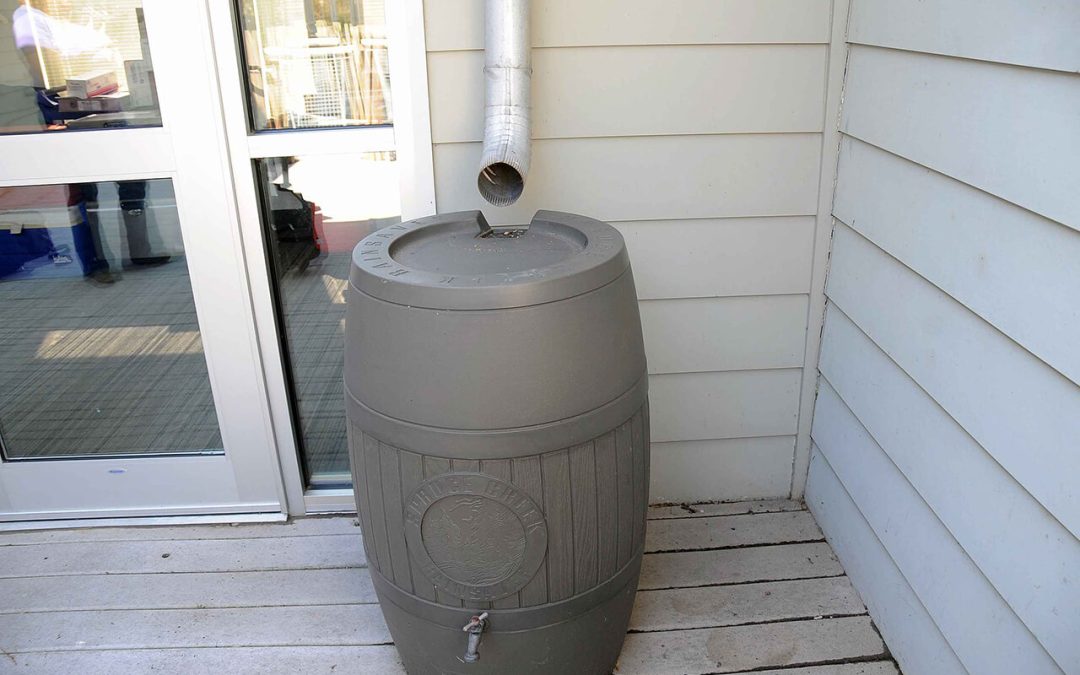As homeowners become more aware of their environmental impact, sustainable living is increasingly important. Shifting towards an eco-friendly lifestyle helps the planet by reducing energy costs, increasing the longevity of your home, and promoting a healthier living environment. Below are practical, long-term tips that homeowners can adopt to live sustainably while maintaining comfort and style.
Choose Energy-Efficient Appliances
One of the simplest ways to incorporate sustainability into your home is by choosing energy-efficient appliances. When it’s time to replace outdated models, opt for those with the ENERGY STAR® label. These appliances, such as refrigerators, washing machines, and dishwashers, are designed to use less electricity and water, significantly reducing your utility bills.
Beyond appliances, consider energy-efficient lighting. LED bulbs use less energy and last longer than traditional incandescent bulbs. Switching to LED lighting will cut your energy consumption, with the added benefit of fewer lightbulb replacements.
Improve Your Home’s Insulation for Sustainable Living
A well-insulated home is more energy-efficient. It retains heat in the winter and stays cooler in the summer, reducing the need for heating and air conditioning. Upgrading your home’s insulation, especially in the attic, walls, and basement, will conserve energy.
Pay attention to window insulation as well. Installing double- or triple-glazed windows helps prevent heat loss and improves your home’s energy efficiency. Seal cracks and gaps in windows and doors to minimize drafts and prevent air leaks, keeping your home temperature regulated without overworking your HVAC system.
Install Solar Panels
Investing in renewable energy is a powerful way to adopt sustainable living. Solar panels are a long-term investment that can reduce electricity costs and decrease reliance on fossil fuels. Although the upfront cost of solar panels is high, many homeowners find that tax incentives and savings on energy bills make the investment worthwhile over time.
If solar panels aren’t feasible for your property, consider joining a community solar program. These programs allow homeowners to subscribe to a shared system and enjoy the benefits of renewable energy without installing panels on their own homes.
Conserve Water
Water conservation is a critical aspect of sustainable living. Start by installing low-flow fixtures, such as showerheads, faucets, and toilets, in your bathrooms and kitchen. These fixtures reduce water usage without sacrificing performance, helping to conserve this valuable resource.
In the garden, water conservation can be achieved by planting native, drought-tolerant plants that require less irrigation. Rainwater harvesting systems are another effective way to reduce water waste. Collecting rainwater in barrels provides a free source of water for outdoor plants, lawns, and even indoor non-potable uses.
Adopt Sustainable Landscaping
Eco-friendly landscaping, also known as xeriscaping, focuses on using plants that thrive in local conditions with minimal water and maintenance. Native plants are an excellent choice because they are adapted to the regional climate and often attract local wildlife, supporting biodiversity.
Consider replacing traditional grass lawns with ground covers like clover or wildflowers that require less water, mowing, and fertilizer. Additionally, using organic mulch in garden beds will reduce water evaporation, retain moisture in the soil, and minimize weed growth.
Reduce, Reuse, and Recycle
Incorporating the principles of reduce, reuse, and recycle can transform how you manage household waste. Begin by reducing the number of disposable items you purchase. Opt for reusable alternatives such as cloth napkins, glass containers, and stainless steel water bottles. Reuse items around the home whenever possible, like repurposing old furniture or using glass jars for storage.
Recycling should become second nature in your home. Keep separate bins for recyclables, compostable materials, and general waste. Many municipalities offer guidelines on how to recycle correctly, making it easier for homeowners to divert waste from landfills. Composting food scraps and yard waste is another way to create nutrient-rich soil for your garden while keeping organic materials out of the trash.
Embrace Smart Home Technology for Sustainable Living
Smart home technology can help you reduce your environmental footprint by managing your home’s energy consumption more efficiently. Smart thermostats are a popular choice for homeowners looking to save energy. These devices learn your daily habits and adjust heating and cooling settings accordingly, ensuring that your home isn’t using more energy than necessary.
Smart lighting systems are another eco-friendly addition. You can control lighting from your smartphone or set schedules, so lights turn off automatically when they’re not in use. These systems conserve energy while adding convenience to your daily life.
Use Sustainable Building Materials
When it comes to home improvements or renovations, choosing sustainable building materials is key to minimizing your environmental impact. Look for materials that are locally sourced, recycled, or made from renewable resources. For instance, bamboo is a fast-growing, renewable resource that can be used for flooring and furniture.
If you’re remodeling, consider reclaimed wood or recycled steel, both of which reduce the need for virgin materials. Low-VOC (volatile organic compound) paints, finishes, and adhesives are another sustainable choice, as they improve indoor air quality by releasing fewer harmful chemicals into your home.
Maintain a Garden for Sustainable Living
Gardening is a sustainable hobby when done with an eco-conscious mindset. Organic gardening methods, such as avoiding chemical pesticides and fertilizers, promote soil health and support beneficial insects like bees and butterflies. Companion planting—placing plants together that benefit each other—helps reduce the need for chemical treatments by naturally deterring pests and enhancing growth.
A home garden can also contribute to a sustainable lifestyle by growing your own food. Planting vegetables, herbs, and fruit trees reduces the need for store-bought produce and cuts down on the energy used for packaging and transportation.
Adopt a Minimalist Mindset
Lastly, adopting a minimalist mindset helps create a more sustainable home. Focus on quality over quantity when purchasing home goods and decor. By choosing well-made, durable items, you’ll reduce the frequency of replacements, contributing to less waste. Avoid trends that lead to unnecessary purchases and clutter, and instead curate a home that reflects your values and style in an intentional, eco-friendly way.
Sustainable living is a journey, not a destination. Every small change you make in your home can have a positive impact on the environment, your health, and your budget. By embracing these sustainable living tips, homeowners contribute to a greener future while enjoying the comfort and functionality of an eco-friendly home.
Sustainable Living FAQs
What is gray water, and how can I use it sustainably in my home?
Gray water is lightly used water from sources like sinks, showers, and washing machines (excluding toilets). While it’s not suitable for drinking, it can be safely reused for non-potable purposes, such as irrigating your garden or flushing toilets. Installing a gray water system in your home will help reduce your overall water usage and make your household more water-efficient.
What types of flooring are the most sustainable?
Some of the most sustainable flooring options include bamboo, cork, and reclaimed wood. Bamboo grows rapidly, making it a renewable resource, while cork is harvested from the bark of cork oak trees without harming the tree itself. Reclaimed wood is another eco-friendly choice because it repurposes materials from old buildings, reducing the demand for new lumber. If you’re looking for tile options, consider those made from recycled materials, such as glass or ceramic.
How can I reduce my household waste without overhauling my lifestyle?
Reducing household waste doesn’t require major changes. Start by being mindful of your purchases—opt for products with minimal packaging and reusable alternatives. For example, bring reusable shopping bags and containers when grocery shopping, choose products that come in recyclable packaging, and compost organic waste like food scraps to keep them out of landfills.
Porch Light Home Inspections offers inspections to customers in the central Oregon area. Contact us to schedule our services if you’re buying or selling a home.

